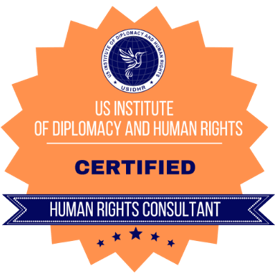STEP ONE: Human Rights Education Explained
2 min read


Explore the basic ideas of human rights with our easy-to-read or listen-to sessions. We focus on keeping things simple and clear so everyone can learn about their rights and the value of human dignity. Join us in spreading knowledge and understanding of human rights for everyone.
What Is Human Rights Education?
Human rights education is about learning what rights everyone has and how to protect them.
It helps people understand the values of fairness, respect, and equality.
It also teaches skills so people can stand up for their rights and the rights of others in everyday life.
For leaders and decision-makers, it shows them how to make sure everyone’s rights are respected and protected.
Why Is It Important?
Human rights education helps build a fairer world where everyone is treated equally.
It teaches people how to solve problems in ways that respect everyone's rights.
When people know their rights, they are less likely to face unfair treatment.
What Does It Teach?
Human rights education focuses on three main areas:
Knowledge:
Understanding basic human rights and why they matter.
Learning about problems like bullying, unfair treatment, or lack of access to education.
Knowing what to do if someone’s rights are violated.
Skills:
Learning how to solve conflicts peacefully.
Standing up for yourself and others.
Working with others to make communities fair and safe.
Attitudes:
Respecting all people, no matter their differences.
Caring about fairness and justice.
Believing in teamwork to solve problems.
How Is It Taught?
Lessons should connect to real-life situations.
Activities might include role-playing, storytelling, games, or art projects.
The goal is to make learning fun and practical so everyone can use what they’ve learned in daily life.
Why Is the World Program for Human Rights Education Special?
The United Nations started this program to teach human rights worldwide.
It began in 2005 and continues in phases to reach people of all ages, focusing on schools, workplaces, and communities.
The latest phase (2020–2024) is about helping young people, like you or someone you know, become leaders who know their rights and can make a difference.
How Does It Help Youth?
Teaches Life Skills:
Learn to lead, make fair decisions, and stand up for what’s right.
Empowers You:
Know your rights and how to claim them.
Help others when their rights are ignored.
Builds a Better World:
Work together to stop bullying, unfair treatment, and other problems.
Promote peace and fairness in your community.
What Can You Do?
Learn: Understand your rights and share what you know with friends and family.
Act: Stand up when you see unfairness and work with others to solve problems.
Lead: Be a role model by treating everyone with respect and fairness.
Human rights education shows that YOU have the power to make the world a better place!
Learn
Explore foundational knowledge of human rights easily.
Support
© 2024. All rights reserved.


